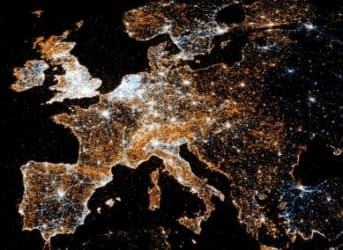On Wednesday, Feb. 25, EU Energy Commissioner Maros Sefcovic presented an Energy Union proposal to supply Eastern Europe with gas from domestic sources. This draft document, which was made available to The Guardian, details another “paper” plan by EU officials that is completely out of touch with any sort of realistic system for providing energy as well as the interests of the oil and gas industry in the end-users’ countries.
Within the rich history of meaningless documents and projects on the theme of EU energy self-sufficiency, Maros Sefcovic’s project was preceded by the stillborn Nabucco pipeline, the Southern Gas Corridor, and a host of other initiatives. None of these ventures ever got past the stage of issuing memoranda of cooperation. At their first opportunity, the energy corporations ditched the idealists from Brussels and continued their focus on the interests of their clients.
In addition to the usual EU hedging, this time the presentation by the new Energy Union was accompanied by pompous references to the union’s origins in 1950, the alliance of coal and steel producers, and Franklin Roosevelt’s New Deal (“a new deal for energy consumers”). It is no recent revelation that when an EU bureaucrat suddenly brings up “values” and begins lamenting the self-serving interests of national corporate players, affairs in Brussels are going worse than ever. The whole narrative of Russia’s “excommunication” from EU consumers due to her sins in Ukraine is starting to resemble Aesop’s famous fable about an assembly of mice who convene in order to hang a bell on a cat (“They were accepting the proposal with great enthusiasm and applause, until a quiet old mouse stood up to speak, ‘Tis well said, but which one of us will put the bell around cat’s neck?’”). Related: EU Energy Union Could Start In The North Sea
The truth is that Ukraine’s latest refusal to pay its gas bills has been an unpleasant surprise for EU officials. Maros Sefcovic even said at a news conference that the issues of supplies and the price of gas for Donetsk and Luhansk regions will be treated separately from the “winter gas package” that guarantees deliveries this winter. In other words, Brussels de facto confirms the special economic status of these disputed territories.
No one wants to be responsible for wiping out Ukraine as a transit country because of a civil war in the center of Europe. Therefore the idea of an “energy union that speaks with one voice in global affairs” is being hastily concocted. Countries with diverse energy mixes, various configurations for their national energy consumption, and differing levels of industrial development are being strongly advised to coordinate their energy agenda with the former European Commissioner for Youth. The document is silent about whether the German energy conglomerates and French nuclear experts will want to “speak with one voice” together with consumers in power-hungry Moldova. It is not unreasonable to believe that those voices will be different. Related: Is The EU Finally Breaking Free Of Russia’s Energy Grip?
Collective action problems in the EU do not arise because of conflicting values or Moscow sympathies. Cooperation with Russia is beneficial to Hungary, Greece, and other regional players because they have spent decades (1970-1990) forging energy ties with other countries of Eastern Europe with the help of the former Soviet Union. Forced to choose between paper projects vs. cheap energy for their constituents, any sensible politician would opt for the latter. What’s more, any head of state who authorizes Brussels to “veto” a bilateral agreement on an energy partnership will appear, in the eyes of his own countrymen, to be selling off the nation’s sovereignty. The fact is, the 28 national regulatory frameworks that have currently been adopted by the EU member states, in contrast to many documents from Brussels, do not exist merely to flaunt their beautiful infographics at press briefings. National energy legislation reflects the specific interests of the oil and gas, coal, and nuclear industries, as well as that of the trade unions in each nation.
Curiously, the political goal of allowing strict supranational regulation from Brussels over the economy coexists in the document with entirely liberal appeals “to reduce administrative barriers.” Conceptually the new Energy Union is an odd, two-headed monster, born - one must understand –out of EU commissioners’ desire to regulate the foreign trade of corporations within national states. From a practical point of view, the document has only one important psychological function, which is to act as a type of inspiring fairy tale for Ukraine’s weakened economy - a gesture of EU’s goodwill on the part of those who are responsible for gas talks in Kyiv.
By Igor Alexeev for Oilprice.com
More Top Reads From Oilprice.com:
- EU Energy Union May Be Biting Off More Than It Can Chew
- EU Pushes For Greater Integration Into An Energy Union
- Gazprom Confident In European Future Despite ‘New Cold War’

















